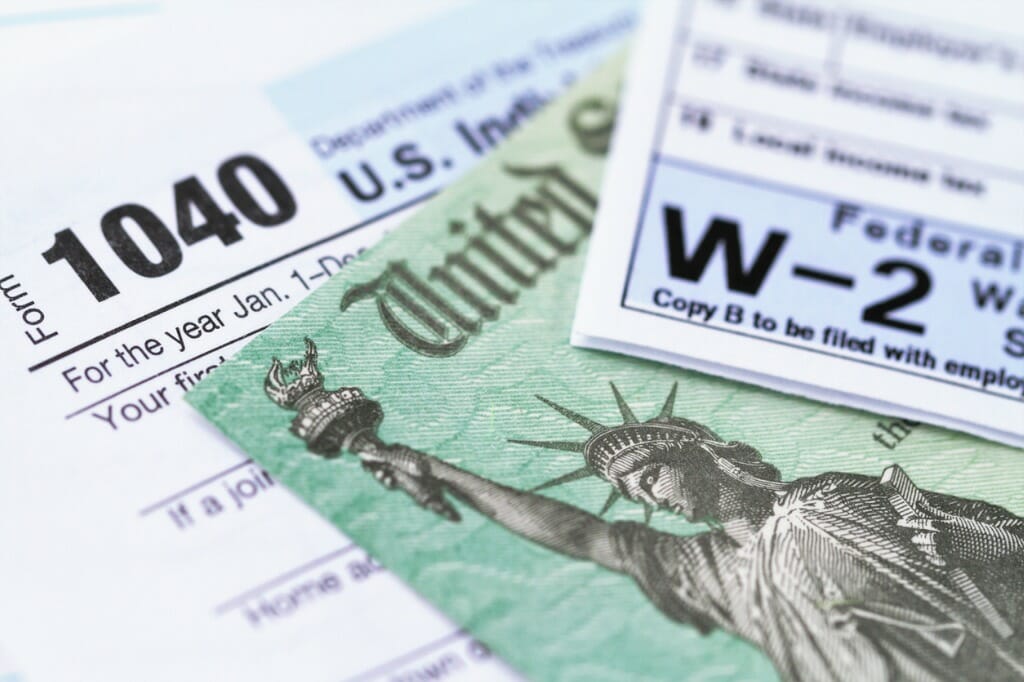IRS Extends Filing and Payment Deadline
 The Treasury Department and IRS announced Wednesday that the federal income tax filing due date for individuals for the 2020 tax year will be automatically extended from April 15, 2021, to May 17, 2021.
The Treasury Department and IRS announced Wednesday that the federal income tax filing due date for individuals for the 2020 tax year will be automatically extended from April 15, 2021, to May 17, 2021.
The IRS states that they will be providing formal guidance in the coming days.
Individual taxpayers can also postpone federal income tax payments for the 2020 tax year due on April 15, 2021, to May 17, 2021, without penalties and interest, regardless of the amount owed. This postponement applies to individual taxpayers, including individuals who pay self-employment tax. Penalties, interest and additions to tax will begin to accrue on any remaining unpaid balances as of May 17, 2021. Individual taxpayers will automatically avoid interest and penalties on the taxes paid by May 17.
Individual taxpayers do not need to file any forms or call the IRS to qualify for this automatic federal tax filing and payment relief.
If you need additional time to file beyond the May 17 deadline, please work with your Whalen advisor to request a filing extension until October 15.
The IRS urges taxpayers who are due a refund to file as soon as possible. Most tax refunds associated with e-filed returns are issued within 21 days.
This relief does not apply to estimated tax payments that are due on April 15, 2021. These payments are still due on April 15. Taxes must be paid as taxpayers earn or receive income during the year, either through withholding or estimated tax payments.
State Tax Returns:
The federal tax filing deadline postponement to May 17, 2021, only applies to individual federal income returns and tax (including tax on self-employment income) payments otherwise due April 15, 2021, not state tax payments or deposits or payments of any other type of federal tax.
State filing and payment deadlines vary and are not always the same as the federal filing deadline.
Currently, the state of Ohio has not announced an extension and still lists their due date as April 15, 2021. We will keep you informed if Ohio and other states follow suit with this extension and notify you as that information becomes available.
For more information or further assistance with your filing, please contact your Whalen advisor.
SOURCE: IRS.gov



 As the latest round of stimulus payments have started hitting some bank accounts, The IRS has updated the
As the latest round of stimulus payments have started hitting some bank accounts, The IRS has updated the 
 A $1.9 trillion U.S. coronavirus relief package was passed by the Senate on Saturday 3/6, and has now been signed by the House of Representatives as well.
A $1.9 trillion U.S. coronavirus relief package was passed by the Senate on Saturday 3/6, and has now been signed by the House of Representatives as well.
 On March 1, 2021, the Internal Revenue Service issued
On March 1, 2021, the Internal Revenue Service issued 
 Democrats on the House Ways and Means Committee are urging the IRS to again extend tax season beyond April 15 to July 15 to give taxpayers an additional three months to file.
Democrats on the House Ways and Means Committee are urging the IRS to again extend tax season beyond April 15 to July 15 to give taxpayers an additional three months to file.